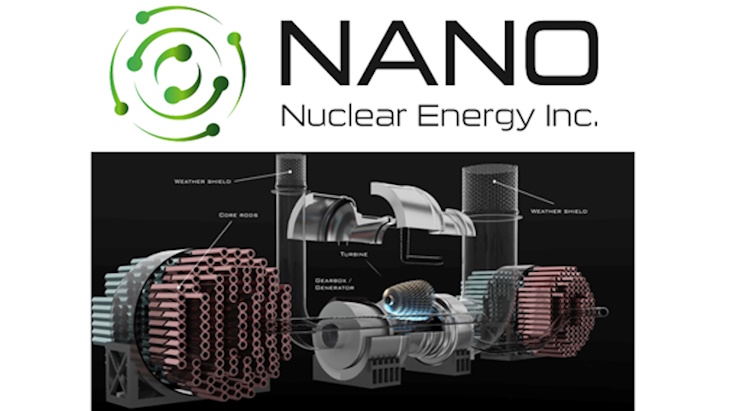NANO Nuclear Energy’s novel heat exchanger concept, intended for use in the Zeus microreactor, a technical audit of the Antares R1 thermosiphon-cooled microreactor, a study to develop purity tests for molten salts, and a screening process to identify potential sites for nuclear-powered data centres have been chosen to receive funding from the US Department of Energy Office of Nuclear Energy’s Gateway for Accelerated Innovation in Nuclear (GAIN) programme.
The GAIN initiative was launched in 2016 to help businesses overcome critical technological and commercialisation challenges of nuclear energy technologies through a voucher system, giving stakeholders access to the DOE’s R&D facilities and infrastructure to support the cost-effective development of innovative nuclear energy technologies. All awardees are responsible for a minimum 20% cost-share, which could be an in-kind contribution.
The recipients of the final round of funding for 2024 are:
Advanced Nuclear Advisors LLC, to partner with Oak Ridge National Laboratory (ORNL) on:
- Project SparkHub: Nuclear-Powered Data Center Development
Antares Nuclear, Inc, partnering with ORNL on:
- Independent Analysis of Antares R1 Core Design
NANO Nuclear Energy, Inc, partnering with Idaho National Laboratory (INL) on
- Independent Assessment of a Novel Heat Exchanger Concept for Open-Air Brayton Cycle
Sigma-Aldrich Inc (doing business as MilliporeSigma), partnering with INL on:
- Development of Oxygen IR Calibration Standards for High-Purity Chloride Salts
NANO Nuclear Senior Director and Head of Reactor Design Massimiliano Fratoni said the award will enable the company to work alongside INL to further refine and progress its design, adding that the partnership will be “pivotal” for its future deployment. “The heat exchanger is an enabling component of our patent-pending ZEUS microreactor design, allowing us to keep the system size compact and simplifying its design to match our vision of developing portable, secure and reliable nuclear microreactors to benefit mankind,” he said.
NANO will collaborate with INL to conduct an independent evaluation of the heat exchanger design for microreactor, which is designed to fit within a 45-foot high cube container and features a power conversion unit capable of generating 1 to 2 MW of electricity without the use of fluid coolant. A key aspect of this design is its ability to dissipate heat from the reactor vessel using an open-air Brayton cycle. The collaboration with INL will involve the development of a computational model to analyse and verify critical attributes of the heat exchanger essential to reactor operations, providing a comprehensive assessment of its performance.
The Antares R1 is described by the company as a kilowatt-scale, rapidly deployable microreactor designed to power critical infrastructure capabilities in “austere and remote” locations on Earth and in space. Earlier in September, the company announced it had been awarded USD3.75 million in funding from the US Air Force to accelerate the development of their microreactor.


